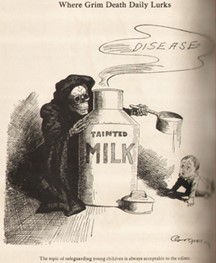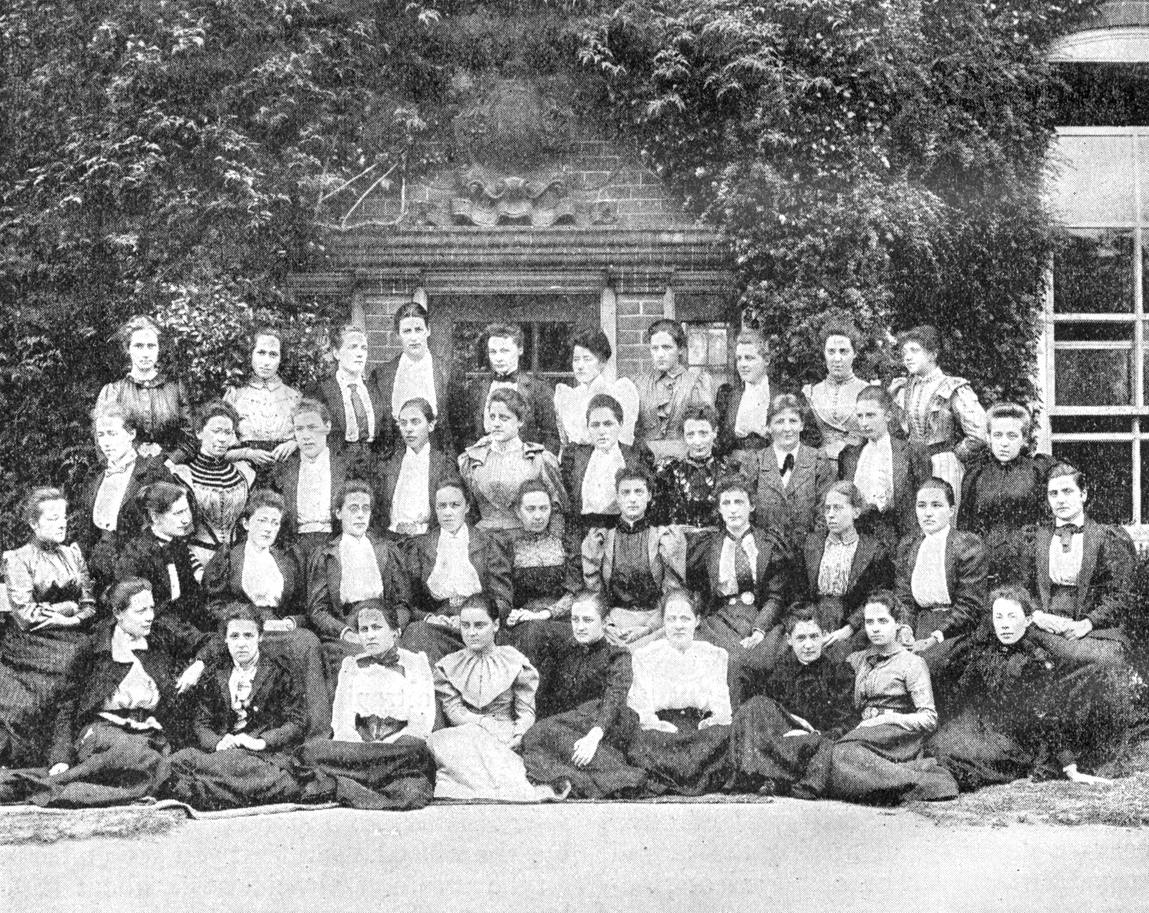In 1908, Baker was appointed as the head of New York City’s Bureau of Child Hygiene. Recognizing the challenges faced by working parents, she embarked on a mission to enhance the health and well-being of children through innovative approaches and visionary thinking.
Illuminating the shadows: Revamping newborn care to combat Syphilis
During a time when syphilis was rampant, Baker introduced a revolutionary approach. By standardizing the dose of silver nitrate administered to newborns’ eyes, she significantly reduced the risk of infection. This simple yet groundbreaking innovation safeguarded countless infants from blindness which had become a widespread threat.
The milk revolution: Ensuring nutritional integrity for children
 Baker’s insights extended to the quality of milk consumed by children. Recognizing widespread adulteration and dilution practices, she enforced stringent standards to ensure that children received safe and nutritious milk. Her unwavering commitment to improving nutritional standards played a vital role in safeguarding youngsters, and giving them a healthy start in life.
Baker’s insights extended to the quality of milk consumed by children. Recognizing widespread adulteration and dilution practices, she enforced stringent standards to ensure that children received safe and nutritious milk. Her unwavering commitment to improving nutritional standards played a vital role in safeguarding youngsters, and giving them a healthy start in life.
Exposing the alarming state of child mortality
Amidst the turmoil of World War I, Baker’s editorial in the New York Times shocked the nation. Her calculations revealed that child mortality rates in New York City surpassed those of American servicemen on the Western Front. This revelation ignited a sense of urgency, prompting widespread public wellness reforms to protect the lives and well-being of children.
Typhoid Mary
Baker’s determination to prevent the spread of typhoid fever led her to a collaboration with George Soper. Together, they traced outbreaks to “Typhoid Mary,” an asymptomatic carrier of the disease. Despite Mary’s denial, Baker’s relentless pursuit of the truth led to her containment, preventing further transmission which saved lives and set a precedent for enacting disease control measures.
 Baker understood that sustainable change begins at the grassroots level. She empowered mothers with knowledge and training, emphasizing the importance of handwashing and hygiene practices. By instilling these practices, she created healthier environments within households and communities, reducing the spread of infectious diseases and improving overall well-being.
Baker understood that sustainable change begins at the grassroots level. She empowered mothers with knowledge and training, emphasizing the importance of handwashing and hygiene practices. By instilling these practices, she created healthier environments within households and communities, reducing the spread of infectious diseases and improving overall well-being.
Dr. Baker faced opposition from traditionalists and vested interests who resisted her transformative reforms. Despite challenges, she remained steadfast in her mission, persevering against criticism and even congressional hearings. Her unwavering commitment and resilience propelled her reforms forward, securing a brighter future for public health and challenging the status quo.
A legacy of progress: Spreading reforms across the nation
Josephine Baker’s pioneering spirit and visionary reforms extended far beyond New York City. She ultimately inspired change across the nation, with 35 states enacting similar measures. In 1912, her initiatives formed the foundation for the US Children’s Bureau. Within a few years, diseases that had plagued humanity for millennia, including cholera, smallpox, and typhoid, were virtually eradicated, leaving behind a noteworthy legacy of progress and improved public health.
References
Baker, S. J. (1925). Child hygiene. Harper.
King, C. R. (1993). Children’s health in America: A history. Bantam.




